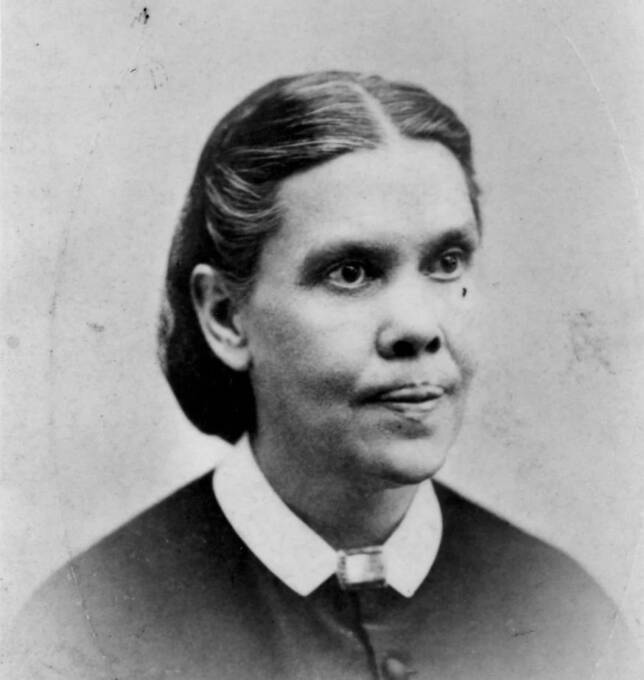We wouldn't ask a baby to tie her shoes, yet we expect new believers to have it all figured out! What growth has looked like in your life may not look the same for your neighbor, and that's okay. We all have to walk it out with Jesus, right? He is the destination, and the path. Amen?
Comment "YES." Source: https://www.youtube.com/shorts/9gqzDzzmlQ8
Can We Please Allow Ellen White to Be Human?

Maybe it’s time to stop expecting Ellen White to be something she never claimed to be: infallible. She was human. She got tired. She got cranky. She didn’t throw books, but she did throw some scorching letters that made a few pastors wish she had. And she definitely didn’t get every health reform idea from […] Source: https://atoday.org/can-we-please-allow-ellen-white-to-be-human/
God First: Your Daily Prayer Meeting #1258
Bible verse of the day: Psalm 18:6 – "In my distress I called to the Lord; I cried to my God for help. From his temple he heard my voice; my cry came before him, into his ears." Welcome to our Daily Prayer Meeting! This is a safe space where you are seen, heard, and prayed for. Start your day in God's presence—every day at 8AM ET, we share a short devotional from God's Word and lift your prayer requests to Him. You're not alone! Our prayer team is here to intercede with you and for you. Whether you need prayer, celebrate a breakthrough, or start your day with Jesus, you're in the right place. Share your prayer requests or testimonies of praise here: https://wkf.ms/3DBuapQ Engage with us in the comments:
• How can we pray for you today?
• Where are you watching from?
• What are you thankful for? How has God answered your prayers?
Let’s grow together in faith, hope, and love—one prayer at a time. Don’t forget to subscribe and turn on notifications so you never miss a prayer. 🔔 Share this video with someone who needs hope or tag a loved one who needs encouragement today. Today’s Message: Pastor Alfred Kwasi Asiem The Seventh-day Adventist Church has been an established denomination since 1863. It is a global Christian family with over 21 million members who hold the Bible as the ultimate authority. We are believers committed to helping people understand the Bible to find freedom, healing, and hope in Jesus. Want to learn more about the Seventh-day Adventist Church? Visit our website at: https://www.adventist.org/ Find us on social media by following the links below:
Facebook:
https://www.facebook.com/theadventistchurch
Instagram:
https://www.instagram.com/adventistchurch
Twitter/X: https://twitter.com/adventistchurch 👉 Want more prayer moments? Watch our full playlist of daily prayer videos here: https://youtube.com/playlist?list=PL-k2Gb-DBYo–V8axD7iFUL6TFEckrhxv&si=vIljgfwrSZN6iJR2 God First, Daily Prayer, Prayer Meeting, Christian Prayer, Morning Devotional, Hope In Jesus, Bible Verse Of The Day, Prayer Request, Faith Community, Seventh Day Adventist Source: https://www.youtube.com/watch?v=lWNNczB8Fqw
God First: Your Daily Prayer Meeting #1258
Bible verse of the day: Psalm 18:6 – "In my distress I called to the Lord; I cried to my God for help. From his temple he heard my voice; my cry came before him, into his ears." Welcome to our Daily Prayer Meeting! This is a safe space where you are seen, heard, and prayed for. Start your day in God's presence—every day at 8AM ET, we share a short devotional from God's Word and lift your prayer requests to Him. You're not alone! Our prayer team is here to intercede with you and for you. Whether you need prayer, celebrate a breakthrough, or start your day with Jesus, you're in the right place. Share your prayer requests or testimonies of praise here: https://wkf.ms/3DBuapQ Engage with us in the comments:
• How can we pray for you today?
• Where are you watching from?
• What are you thankful for? How has God answered your prayers?
Let’s grow together in faith, hope, and love—one prayer at a time. Don’t forget to subscribe and turn on notifications so you never miss a prayer. 🔔 Share this video with someone who needs hope or tag a loved one who needs encouragement today. Today’s Message: Pastor Alfred Kwasi Asiem The Seventh-day Adventist Church has been an established denomination since 1863. It is a global Christian family with over 21 million members who hold the Bible as the ultimate authority. We are believers committed to helping people understand the Bible to find freedom, healing, and hope in Jesus. Want to learn more about the Seventh-day Adventist Church? Visit our website at: https://www.adventist.org/ Find us on social media by following the links below:
Facebook:
https://www.facebook.com/theadventistchurch
Instagram:
https://www.instagram.com/adventistchurch
Twitter/X: https://twitter.com/adventistchurch 👉 Want more prayer moments? Watch our full playlist of daily prayer videos here: https://youtube.com/playlist?list=PL-k2Gb-DBYo–V8axD7iFUL6TFEckrhxv&si=vIljgfwrSZN6iJR2 God First, Daily Prayer, Prayer Meeting, Christian Prayer, Morning Devotional, Hope In Jesus, Bible Verse Of The Day, Prayer Request, Faith Community, Seventh Day Adventist Source: https://www.youtube.com/watch?v=lWNNczB8Fqw
5: Shining as the Lights in the Night — Singing with Inspiration
The great lesson we learn from dear Paul this quarter is that we are to
Stand Up! Stand Up For Jesus! – Hymn 618. This is a beautiful theme hymn to give us a great reminder of what we need in our world that is falling apart these days.
We can “shine as lights in the world” according to our Memory Text this week by singing T
his Little Light Of Mine – Hymn 580. More is unpacked in the Sabbath afternoon introduction and gives us
Hymn 234 – Christ Is The World’s Light and
Hymn 345 – Christ Is The World’s True Light.
There is great encouragement given on Sunday to
Trust And Obey – Hymn 590 all because
God Is My Strong Salvation – Hymn 339 and we are able to do this with “God’s Spirit” as the day of study is completed:
Spirit Of God – Hymn 266.
Once again, our lights are set to shine on Monday giving us the hymns above:
Hymn 580, Hymn 234 and Hymn 345. As the study comes to a close on this day, we are encouraged to be “holding fast the word of life” (Phil 2:15):
Hold Fast Til I Come – Hymn 600.
With all that Paul is saying and encouraging us to do (Tuesday), are we able to be “A Living Sacrifice” and say
I’ll Go Where You Want Me To Go – Hymn 573? This idea continues on Wednesday, and are we able to do as God asks in
So Send I You – Hymn 578? With our “commitment to Christ” let us heed
Come, All Christians, Be Committed – Hymn 634. As we keep learning from Paul, we will be
Like Jesus – Hymn 492 and sing
I Would Be Like Jesus – Hymn 311.
Please continue to search the scriptures this week to be blessed, and to bless others.
To learn unknown hymns, you will find the accompaniment music for each one at: https://sdahymnals.com/Hymnal/
Another great resource is for when there is a hymn you wish to sing but can’t find it in your hymnal. Go to https://www.sdahymnal.org/
2 Timothy 2:15 KJV – “Study to shew thyself approved unto God, a workman that needeth not to be ashamed, rightly dividing the word of truth.”
20250314 01
20250315 02
20250315 01
Quando il cuore chiede tregua #drittoalcuore
Ci sono giorni in cui il corpo e il cuore si sentono più fragili. La Bibbia ci ricorda che Dio non ignora le nostre ferite: promette cura, pace e verità, anche quando la guarigione non arriva come ce l’aspettiamo. Oggi, fermati un attimo: da quale aspetto della tua vita può iniziare una guarigione? #MeditazioneDelGiorno #GuarigioneInteriore #Speranza #Fede #Pace #HopeMediaItalia #YouTubeShorts Source: https://www.youtube.com/shorts/8zGZn6OwtvY
20250322 01
- « Previous Page
- 1
- …
- 35
- 36
- 37
- 38
- 39
- …
- 4845
- Next Page »

